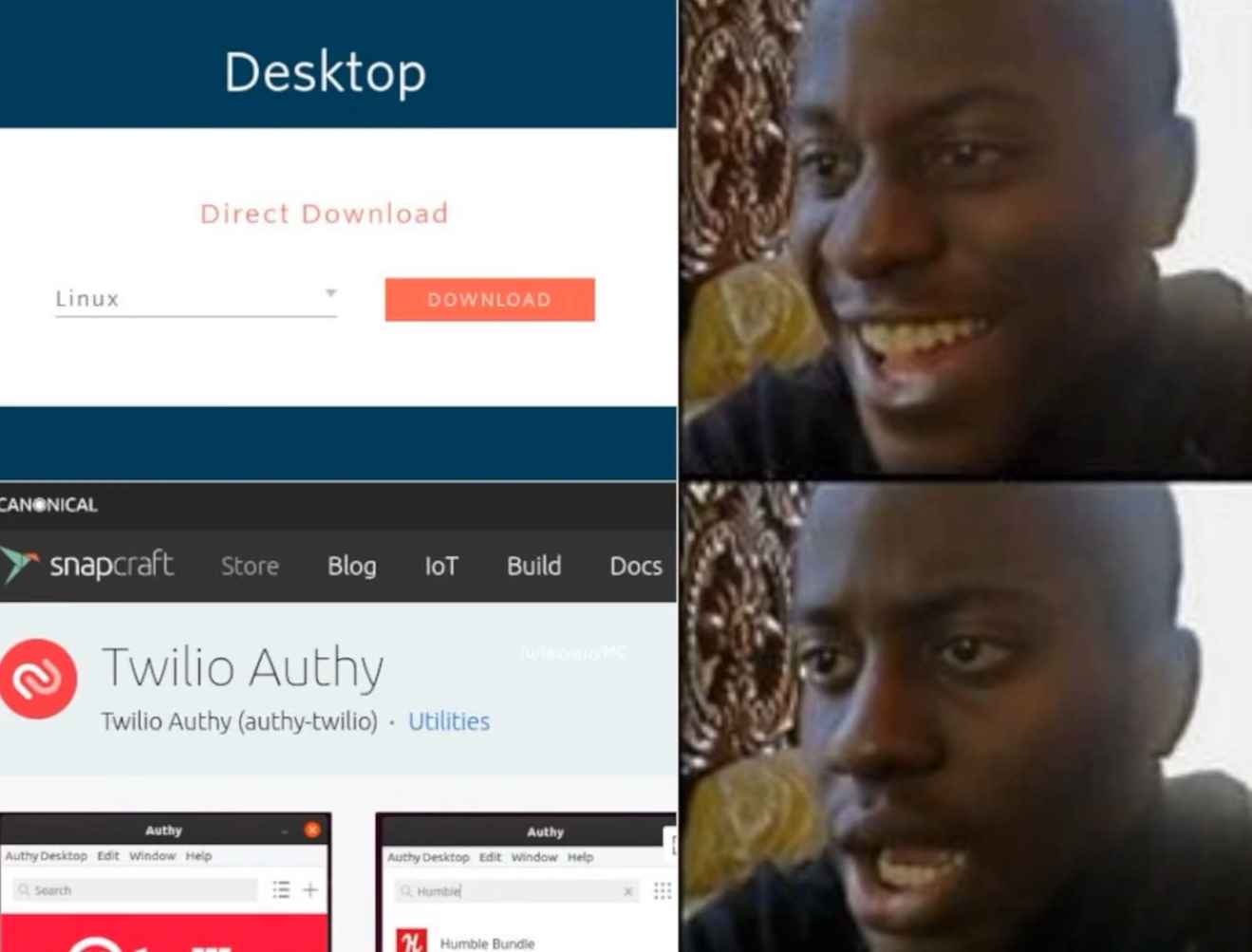this post was submitted on 15 Nov 2024
322 points (97.9% liked)
linuxmemes
22440 readers
1239 users here now
Hint: :q!
Sister communities:
Community rules (click to expand)
1. Follow the site-wide rules
- Instance-wide TOS: https://legal.lemmy.world/tos/
- Lemmy code of conduct: https://join-lemmy.org/docs/code_of_conduct.html
2. Be civil
- Understand the difference between a joke and an insult.
- Do not harrass or attack users for any reason. This includes using blanket terms, like "every user of thing".
- Don't get baited into back-and-forth insults. We are not animals.
- Leave remarks of "peasantry" to the PCMR community. If you dislike an OS/service/application, attack the thing you dislike, not the individuals who use it. Some people may not have a choice.
- Bigotry will not be tolerated.
- These rules are somewhat loosened when the subject is a public figure. Still, do not attack their person or incite harrassment.
3. Post Linux-related content
- Including Unix and BSD.
- Non-Linux content is acceptable as long as it makes a reference to Linux. For example, the poorly made mockery of
sudoin Windows. - No porn. Even if you watch it on a Linux machine.
4. No recent reposts
- Everybody uses Arch btw, can't quit Vim, <loves/tolerates/hates> systemd, and wants to interject for a moment. You can stop now.
5. 🇬🇧 Language/язык/Sprache
- This is primarily an English-speaking community. 🇬🇧🇦🇺🇺🇸
- Comments written in other languages are allowed.
- The substance of a post should be comprehensible for people who only speak English.
- Titles and post bodies written in other languages will be allowed, but only as long as the above rule is observed.
Please report posts and comments that break these rules!
Important: never execute code or follow advice that you don't understand or can't verify, especially here. The word of the day is credibility. This is a meme community -- even the most helpful comments might just be shitposts that can damage your system. Be aware, be smart, don't remove France.
founded 2 years ago
MODERATORS
you are viewing a single comment's thread
view the rest of the comments
view the rest of the comments

But isn't appimage the closest one to the app-system from Android? Since things could be really different on many clients an "app-container" is the best solution.
Why not containerise everything? You need libreoffice? No problem, here is a docker or podman container.
BTW. I like flatpak, too. It's the most stable, but I never understand it's mechanics. There is always another pack installed, freecode, gtk, qt whatever. Even if the system has already the correct gtk version, nope, the dev decided to use the gtk image from Ubuntu.
Flatpak is basically GUI-optimized containers. It uses the same technology (namespaces) as docker and podman, just with some extra tools to make GUI-related things work properly. That's why flatpak apps don't use the system's gtk version -- they're running in a sandbox with a different rootfs. You can spawn a shell into the sandbox of a specific app with
flatpak run --command=sh com.yourapp.YourAppand poke around it if you want to.It uses bubblewrap for sandboxing under the hood, right?
Thx, looks like that's the info I've missed.
If you're interested in another approach to containerizing GUI applications, also checkout out x11docker. It's a small independent project maintained by one guy, nothing big like flatpak, but also pretty cool. The name is actually a bit limiting -- it supports both docker and podman, and can run wayland apps as well. One of the coolest features, in my opinion, is the ability to run a separate X server inside every sandbox and forward individual windows to the "host" X server. That way you can prevent apps from spying on your keyboard or other apps' windows.
I'm not too familiar with whatever Android is doing with apks these days tbh. I just don't like how AppImages fails at the one thing it should do (universality) and doesn't have the repo model built in. You can have third party solutions to that but it's just not the same experience.
I've heard people suggest such a solution. Everything is a container and stuff is just exported out so that it shows up to the system like a normal program. Can't really say I'm the right person to judge the pros and cons.
It can be both good and bad and sometimes it's necessary. The whole system relies on being able to use different versions of libraries. But having them as separate packs can help in that programs can share those packs so as a dev you can just target one common base and have your stuff work everywhere. And sharing those runtimes has the benefit of someone else keeping it up to date while you can just test if the updated version works for you and switch to that if it does and so on. And with deduplication, runtimes and stuff share the parts that are common to both afaik.
It's a bit more complicated than just shoving everything in but also it's less work than same thing having to be packaged separately for every distro.